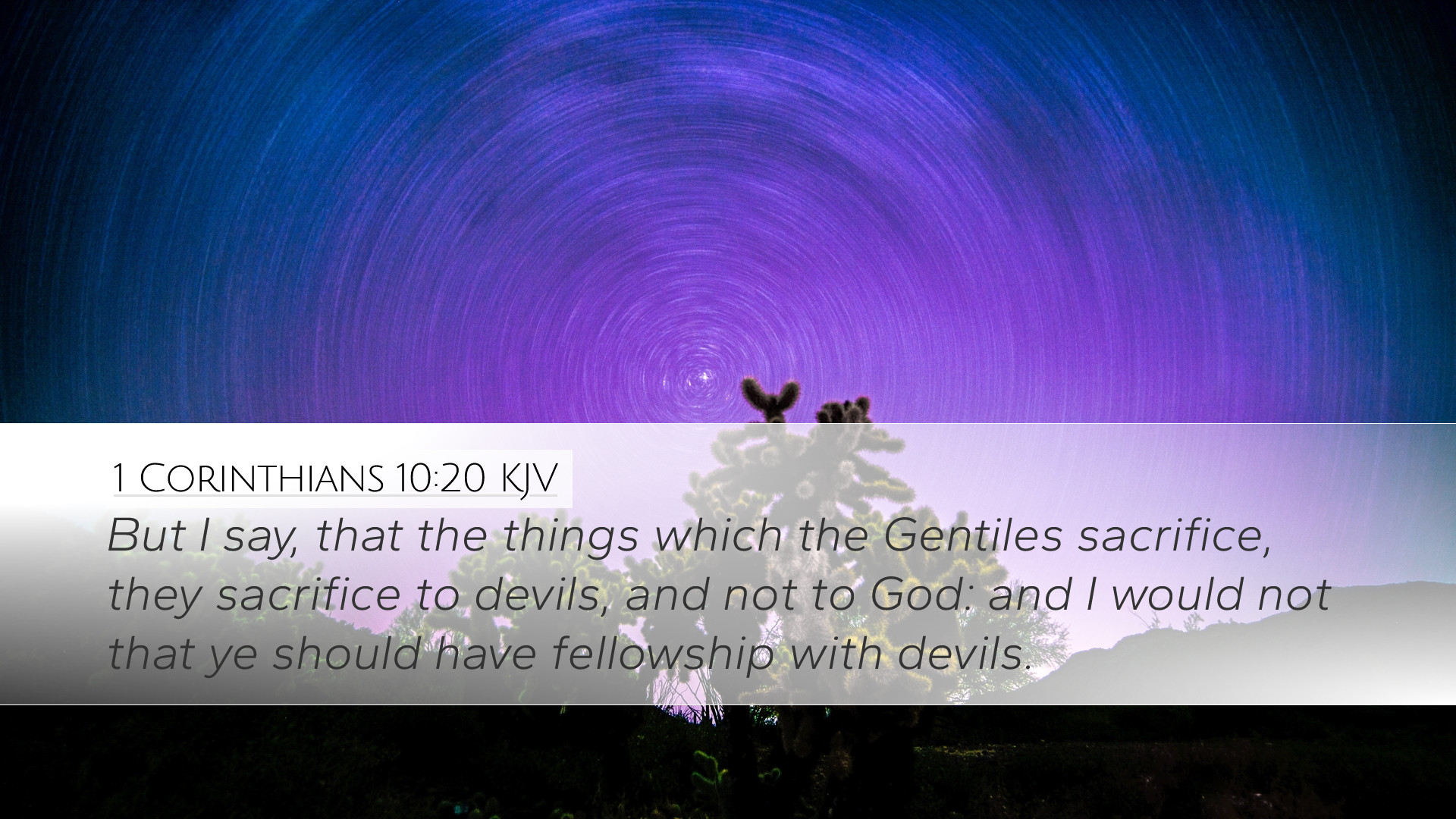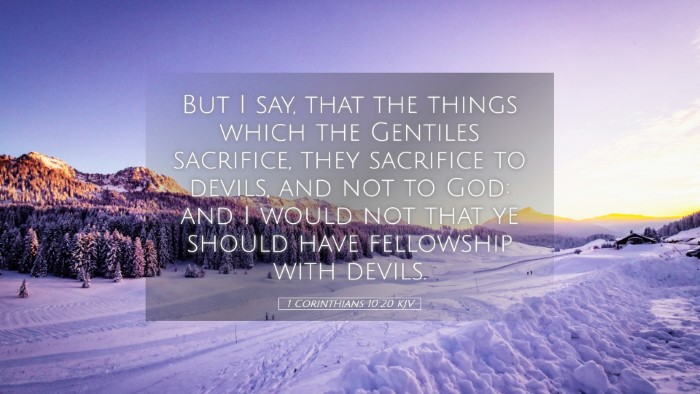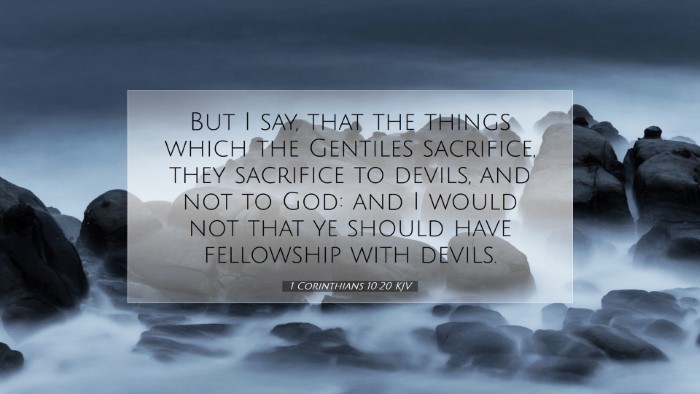Commentary on 1 Corinthians 10:20
1 Corinthians 10:20 reads: "But I say that the things which the Gentiles sacrifice, they sacrifice to devils, and not to God: and I would not that ye should have fellowship with devils."
Introduction
This verse occurs within the larger context of Paul's discussion about idolatry, the consumption of food offered to idols, and the principles of Christian liberty. Paul emphasizes the spiritual implications of engaging in practices associated with Gentile idol worship.
Theological Insights
- Spiritual Reality of Idolatry: Paul asserts that sacrifices made to idols are not merely cultural or traditional practices; they are, in fact, offerings made to demons. Matthew Henry notes that these sacrifices are often brazen acts of false worship, drawing the worshippers away from the truth of the one true God. This one verse encapsulates a significant theological truth, that there is a spiritual dimension to idolatry which manifests itself in the worship of false gods.
- Fellowship with Demons: In a stark warning, Paul urges the Corinthians to avoid fellowship with devils. Albert Barnes elaborates on this by emphasizing the danger of associating with practices that may lead believers away from their commitment to Christ. The term 'fellowship' implies a close, intimate participation that would compromise their spiritual integrity. Paul intimates that partaking in such practices could dilute their devotion to God and ultimately lead to spiritual ruin.
- Cultural Sensitivity vs. Spiritual Integrity: In a world where Corinthian Christians might have felt pressured to engage in social customs (which sometimes included idolatry), Adam Clarke highlights the necessity of upholding spiritual integrity over cultural participation. Clarke notes that cultural acceptance must never come at the cost of one’s relationship with God. Believers are to think critically about their involvement in practices that seem harmless but may carry underlying spiritual dangers.
- The Nature of Sacrifice: The nature of sacrifice in this context is vital. Whereas the Corinthians may have thought of these sacrifices as mere feasts or communal celebrations, Paul redirects their understanding to see these actions as having significant spiritual consequences. Matthew Henry comments on how idolatry involves an affront not only to God but also bears a significant risk of inviting demonic influence into the lives of believers.
Historical Context
Understanding the cultural and historical context of 1 Corinthians is key to unpacking the depth of Paul's message. Corinth was a melting pot of cultures and religions, steeped in idolatrous practices that were integral to daily life. The early Christian community faced substantial challenges in avoiding the pervasive influence of surrounding pagan practices which included idol feasts and temple worship.
According to Albert Barnes, the Corinthian Christians' struggle is akin to that faced by modern believers—navigating a society that promotes secular values and alternative spiritualities. This epistle becomes a timeless guide on the importance of distinguishing between cultural practices and spiritual fidelity, reminding believers of the eternal implications of their social engagements.
Practical Application
Paul's warning not to partake in devils’ fellowship resonates profoundly across generations. For modern Christians, the call to discernment remains critical in relation to societal trends, cultural practices, and even in the worldly systems that can inadvertently lead to spiritual compromise.
- Evaluate Cultural Practices: Believers are encouraged to critically examine cultural customs in light of Scripture, ensuring that their practices are aligned with their faith and do not inadvertently promote idolatry.
- Fellowship and Community: The verse serves as a caution against compromising relationships that may lead one away from Christ. Christians should seek fellowship that nourishes their spiritual growth instead of leading them into spiritual conflicts.
- Understanding of Sacrifice: Recognizing the spiritual aspect of sacrifices, whether in worship or lifestyle choices, should drive believers to offer themselves fully to God and ensure that their lives reflect His glory.
Conclusion
In summarizing 1 Corinthians 10:20, we find profound implications regarding the nature of worship and the character of our associations. The gentle admonition from Paul serves as a spiritual compass urging believers to navigate their faith with integrity. By recognizing the spiritual significance of their actions, Christians today can avoid the pitfalls of modern idolatry, honoring God in every aspect of their lives.
May the insights drawn from this commentary encourage pastors, students, and all believers to maintain a vigilant watch over their hearts, ensuring their worship remains pure and unwavering unto the Lord.


